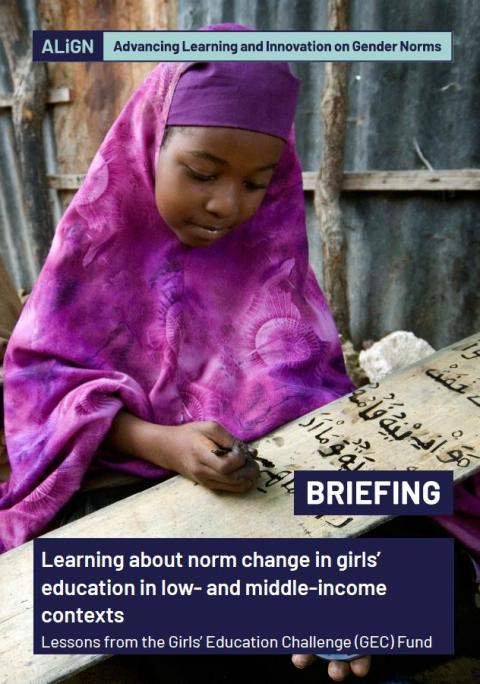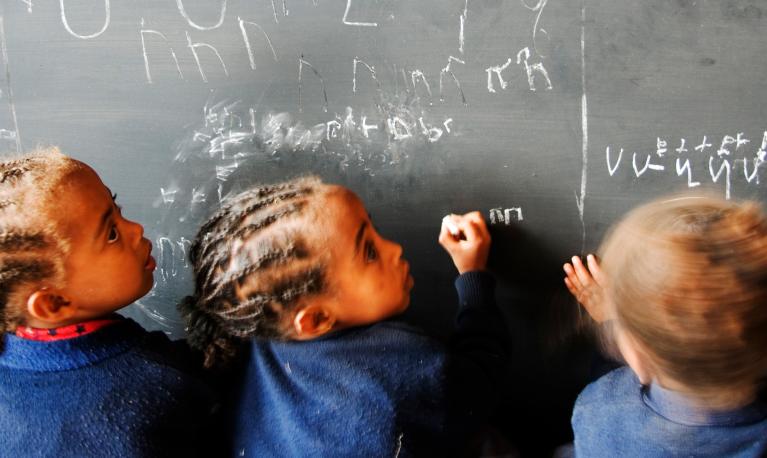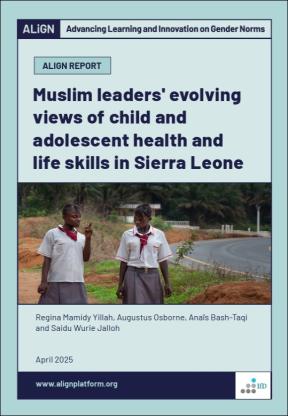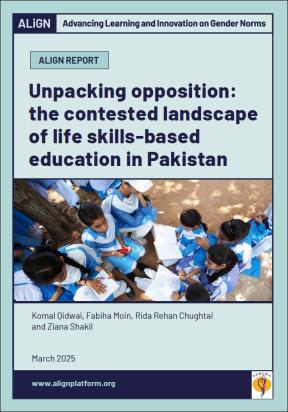- Briefing paper
- 19 March 2019
Learning about norm change in girls’ education in low- and middle-income contexts
- Author: Sophie Amili, Isabella Di Paolo
- Published by: ALIGN

This research was undertaken as part of ALIGN’s Research Fund which supports small-scale action research or research translation projects focused on advancing knowledge and evidence on gender norms across a wide range of contexts.
Through a meta-evaluation of Global Education Challenge (GEC) evaluations and project data on girls’ education projects, Coffey International Development explores what can be learned about norm change in girls’ education in developing contexts in this paper.
Key findings:
- GEC projects identifed norms limiting girls’ ability to enrol, attend and learn in school. These include their roles in the family, where they are expected to support housework and marry young, and in school, where they lack equal opportunities to participate in class. Girls in some communities are discouraged from attending school as their education is not sufficiently valued.
- GEC projects aimed to change these norms by targeting the community, parents, teachers, and girl and boy students. Interventions included clubs and mentoring activities for girls, while parents were reached through awareness-raising activities, such as household visits and parent groups. Teachers were reached mostly through training, community members through media campaigns, and traditional leaders through consultations and sensitisation.
- The work with teachers proved particularly effective in improving education outcomes. Teachers – particularly female teachers – are positive role models for girls and can improve their motivation and self-esteem. This, in turn, enhances attendance and learning.
- Changing gender norms is difficult and time-consuming. Projects reported more success in minimising the impact of norms on girls’ education than in changing those norms. In addition, changes may not take hold: gender norms are slow to change and need continued reinforcement.
- Gender norm change needs to be matched by systemic investments in education. Training teachers, providing quality infrastructure, and supplying learning materials are crucial for better education outcomes.
- Tags:
- Education, Funding round 1
- Countries / Regions:
- Global
Blog
13 March 2019

Tackling gender norms offers hope for girls’ education in low- and middle-income countries
Author: Catherine Jere
Report
14 April 2025

Muslim leaders' evolving views of child and adolescent health and life skills in Sierra Leone
Authors: Regina Mamidy Yillah,
Augustus Osborne,
Anaïs Bash-Taqi,
Saidu Wurie Jalloh
Report
26 March 2025

Unpacking opposition: the contested landscape of life skills-based education in Pakistan
Authors: Komal Qidwai,
Fabiha Moin,
Rida Rehan Chughtai,
Ziana Shakil